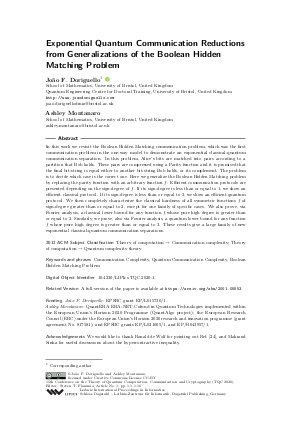LIPIcs.TQC.2020.1.pdf
- Filesize: 0.49 MB
- 16 pages

 Creative Commons Attribution 3.0 Unported license
Creative Commons Attribution 3.0 Unported license






























Feedback for Dagstuhl Publishing